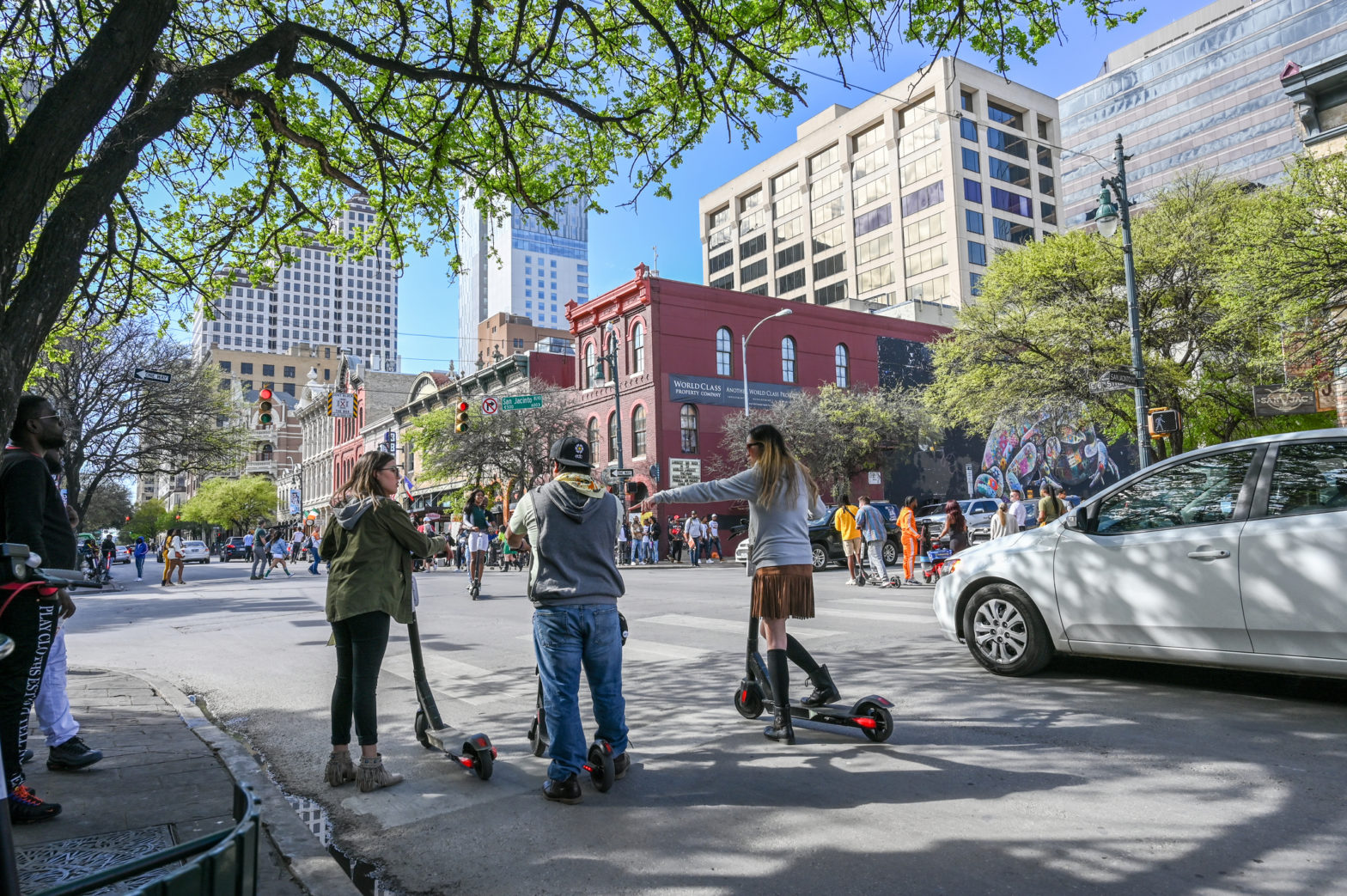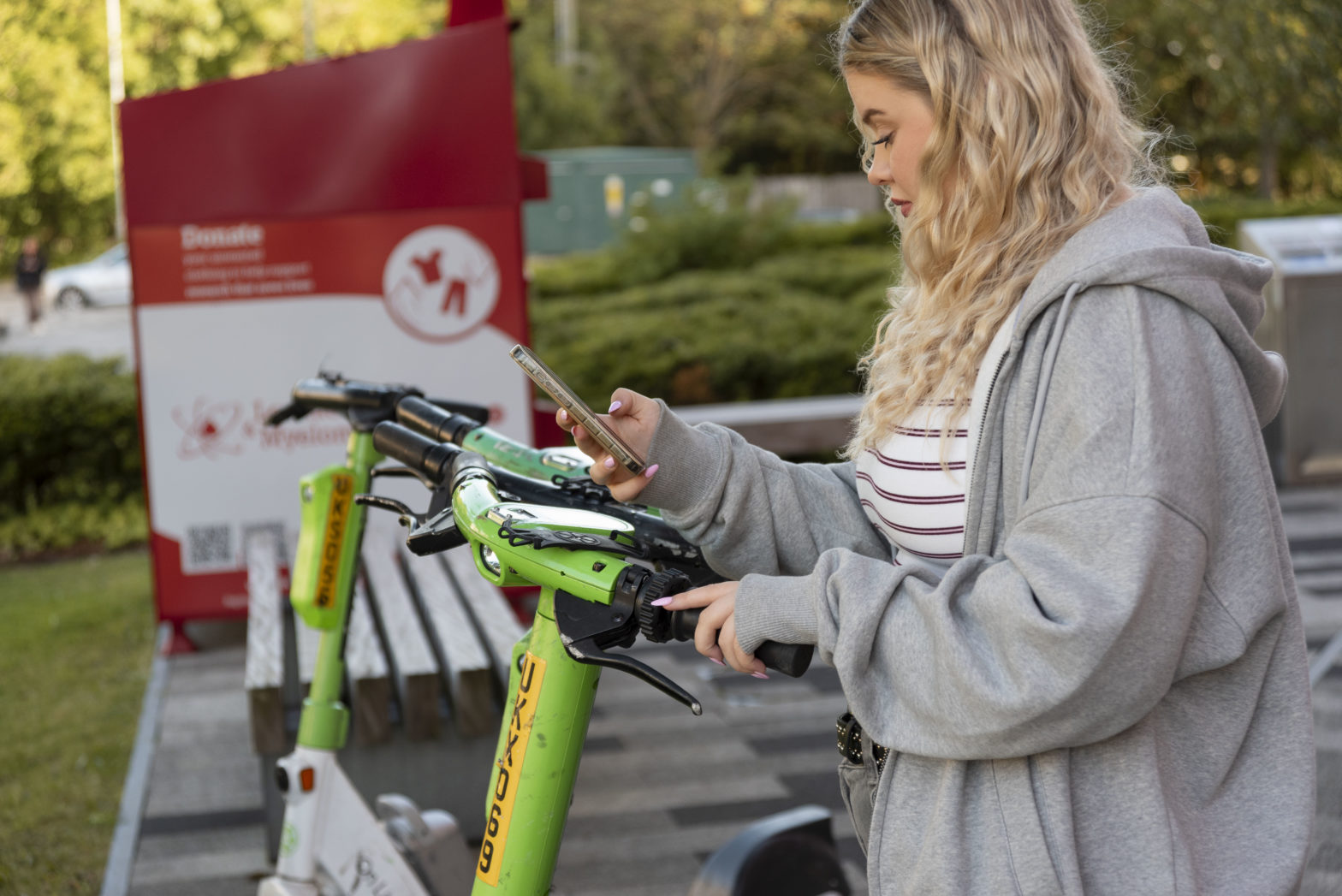
Shared mobility reaches 500m trips milestone
09 September 2025
by Jonathan Andrews
A total of 500 million trips have now been processed through the Mobility Data Specification (MDS) on the Populus platform, a milestone revealed in an interview with Cities Today by Pietro Peyron, City Partnerships Director.
Populus provides cities with tools to gather and act on real-time data from shared mobility and other transport providers. At the core of this work is MDS, an open standard created in Los Angeles in 2017 that gives municipalities and operators a common format for exchanging information.
Peyron said the discussion is no longer about whether these services exist, but how they support broader goals such as reducing emissions and promoting active travel.

“Shared micromobility is no longer a novelty–it is now part of the city landscape,” he said. “We have over 1,000 cities in Europe who are actively managing shared mobility programmes. You need a tool to make sure that shared mobility contributes to your city goals.”
From scooters to standards
MDS was first developed in Los Angeles and later taken forward by the Open Mobility Foundation. What began with e-scooters has since expanded to bikes, mopeds and car sharing. Peyron estimated that more than 90 percent of shared vehicles in Europe now provide data in this format.
“It started with e-scooters specifically, but it has now spread across all different vehicle types,” he said. “Most of the standardisation work has been done, and that’s great, because usually data standardisation is exciting at the beginning and then it gets lost over the years. That’s not the case. This is a story of success.”
The framework has now advanced into version 2.0, which Peyron described as unusually fast progress for such initiatives.
“It’s amazing how much development has happened so quickly. The whole journey has been impressive,” he said.
By contrast, kerbside management remains fragmented, with parking providers, logistics fleets and delivery companies all using different systems. The Open Mobility Foundation has launched a Curb Data Specification, but adoption is still limited.
“What happens on the kerb is extremely complex,” Peyron said. “You have many different players, actors, and data, and everyone is sharing different types of information. We hope we can contribute to the same success of data standardisation that happened with shared mobility, but now for kerb management.”
Cooperation and control
The stabilisation of shared mobility has also changed how cities regulate it. Many are now pursuing cooperation rather than confrontation.
“It’s not really that you have to punish the operators,” Peyron said. “It’s more about cooperating and understanding how shared mobility can contribute to your goals. When you engage with operators, you understand their point of view, then you end up having a better scheme.”
Budapest, for example, turned around an underperforming bike-share system by involving private providers, creating one of Europe’s busiest regular bike services. Milan and Munich were also highlighted as cities embedding shared mobility into wider strategies.
Populus’s platform has been built to support these approaches. By aggregating real-time feeds from operators, parking services, logistics firms and sensors, it provides a ‘single source of truth’. Cities can use this to track trends, link with safety records, and implement policies in real time.
“If you want to create a no-parking zone because there is a special event just for one week, you don’t need back-and-forth,” Peyron explained. “You just publish the API [a digital connector that lets different systems exchange information automatically] with the exact shapefile, so that everyone will know. The operators can integrate these APIs into their backends, and this becomes seamless.”
Peyron pointed to connected vehicles and limited street space as the next big challenges. Without oversight, routing systems can send traffic through sensitive areas such as school streets. Embedding city rules into connected platforms would give municipalities more control. He also argued that physical limits will drive change.
“When you realise there is no more space, then the only thing cars can do is disappear,” he said. “Cities can now start thinking of good ways to first identify the space they have at their disposal, and second decide how to allocate.”
Unlocking potential
Despite the milestone, Peyron believes that most municipalities are still under-using the data they receive. He estimated that more than 90 percent of European cities with shared mobility schemes do not analyse the information in a structured way.
“In Europe, there are around 1,000 cities with shared mobility programmes, and I think over 90 percent of those cities do not use data in a structured way to monitor what’s happening,” he said. “On average, a shared e-scooter delivers a ping every 15 or 20 seconds when it’s travelling, which means the amount of mobility data you can get is huge, and it’s cheap.”
Populus is now active in nine European countries and has projects in both North and South America. Reflecting on the company’s role in shaping the development of MDS, Peyron described the 500 million trips as both a marker of progress and a platform for the future. For him, the milestone shows how far shared mobility has come and what lies ahead.
“It demonstrates the stabilisation of shared mobility and lays the groundwork for applying the same data-driven discipline to the kerb, integrating connected vehicles, and giving cities the tools to reclaim and reallocate their streets.”
Image: Rolf52 | Dreamstime.com














